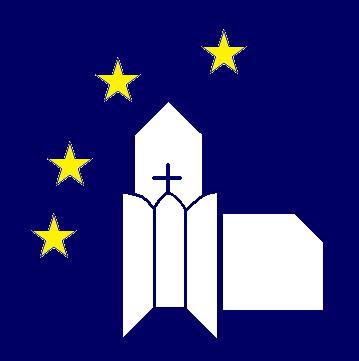Apparently, it is already possible. Africa de la Cruz Tomé is very clear about it. So is Antonio González Fernández. Emma Martínez Ocaña and José Arregi Olaizola do not think differently. They are the four participants in the Round Table of this title, held on Friday 12 November, between six and eight in the evening, organised by the Community of St Thomas Aquinas, with one hundred and nineteen Zoom connections (around 150 participants), with Evaristo Villar acting as moderator.
Africa told us that she already belongs to her church, Church B, she called it, as opposed to Church A,
the Roman, institutional church. The two run parallel, and barely communicate. Hierarchical, patriarchal, clerical, dogmatic, excluding women from decision-making, LGTBI... But where faith has been alive, Antonio told us, fraternal relationships have emerged in which the tendency has been to dissolve all differences. Churches are and have been multiple, and where Jesus is followed, where his Spirit takes hold, there is an assembly, there is a church. There is no future for the institutional Church, as it is going, and despite Francis, who today represents hope, the historical ballast keeps it in the grip of clericalism, the great evil, according to Arregi, of its hierarchical pyramidal structure, of its scandalous exclusion mechanisms, according to Emma, of its dualistic theology in all orders (God the Father over the Son, of heaven over earth, of man over woman, of clerics over laity, of soul over body, etc. ) vividly described by Arregi, as a system of hierarchical submission, right up to its current scandals, its financial opacity, pederasty and its cover-up (Emma).
But we cannot wait for it to renounce the monopoly of the Spirit; changes in style are not enough, it is not enough to abolish clericalism, it is not enough for women to have access to the priesthood... We must go much further; we must eliminate the terms clergy/laity, ...we must radically revise the ministries (Arregi). We cannot wait for the rigid structures to change... Because we only live once. We cannot make excuses for it, we have to live it now. Even if all the previous negative things were to disappear, there would still be problems of all kinds... But we cannot avoid the responsibility of being church (Antonio). Africa, who celebrates the word in the absence of a priest, in the villages of her native Segovia, said it clearly from the beginning: "this is the community of faith that I profess, this is my church, which is already possible". The universal synodal path opened by Francis represents hope, it must be said (Africa). But we live in uncertain times. If, in the end, everything that can be freely expressed on this synodal path is filtered by the bishops, scepticism will resurface. For Arregi, clericalism is the scourge of the Church. But for Africa - Sanchopanza feels - the Church has too many words and too few actions. Let us not forget that synodality is not a gift, it has to be fought for. Finally, for Arregi, we are facing Titanic times for the entire doctrinal scaffolding of the old Church.
On the third question raised, ecumenism, Emma feels comfortable being salt in the midst of so many complex things today. She answers the question about the moments of feminine protagonism in the realisation of the Kingdom of God in history, that in the first centuries there was an important presence of women. Africa insists that the feminine sensibility and perspective are here to stay. For Arregi it is not only a question of believing but of creating, of living with a soul and feeling the vital breath that beats underneath everything, of living with spirit, with political spirituality, unsubmissive but peaceful, building peace with justice... Even so, these are not times of great expectations. But they are times to live with that attitude of active hope, which creates by creating... Antonio points out the importance of learning from sociology and history. Sociology teaches us that we live in times of need for identity; capitalism does not give identity, but people need it. In history we see that constantinism has been in force, both on the right and on the left, but it has entered into crisis. We have to build from below. The gospel is news, and news is always something new to say. New things come from people who don't know what is going to happen, but who are faithful and authentic. We are not in control of the story, but in being faithful and authentic.
All four participants agree that the Church has to be a Community of communities. We don't have to agree on everything to be a Community, we may have different sensibilities, we may not think the same... We just need to recognise all churches as real churches.
The audio of the session, in Spanish, will soon be available on the website www.comunidadsta.org.
Translated with www.DeepL.com/Translator (free version)
